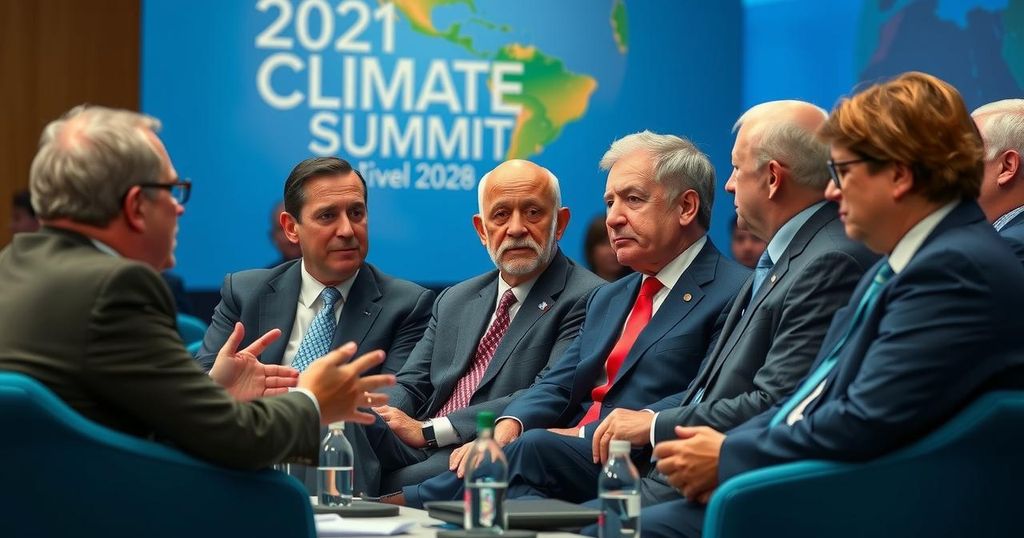At the UN climate summit in Baku, Azerbaijan, world leaders expressed concern over potential setbacks in climate action due to the anticipated policies of President-elect Trump. Despite previous disruptions, diplomats are focused on sustaining global efforts to combat climate change, aware of the significant implications of Trump’s promises to withdraw from the Paris Agreement and dismantle Biden’s climate laws.
At the recent United Nations climate summit in Baku, Azerbaijan, a collective determination emerged from the U.S. and other nations to reassure the global community that advancements in addressing climate change will persist despite the anticipated challenges posed by President-elect Donald Trump’s administration. Participants expressed concerns that a potential withdrawal of U.S. leadership from international climate agreements, particularly the Paris climate accord, could significantly hinder global efforts to combat climate change. Unlike the shockwaves felt after Trump’s first electoral victory in 2016, delegates at this summit acknowledge the likelihood of Trump’s reaffirmation of his intentions to retract commitments made under the Paris agreement. Additionally, there is considerable apprehension regarding his pledge to dismantle President Biden’s comprehensive climate legislation, which stands as the United States’ most robust initiative aimed at curbing greenhouse gas emissions. As representatives engaged in discussions that reflect on both previous and current climatic challenges, they recognized the underlying tension stemming from Trump’s political trajectory, while simultaneously emphasizing the importance of continued international cooperation in climate action. Baku, a nation that depends heavily on hydrocarbons, serves as a crucial backdrop for these deliberations amid a backdrop of economic self-interest.
The backdrop to these discussions includes a decade where climate negotiations have gained momentum, yet faced significant disruptions due to domestic political shifts, particularly in the United States. The 2015 Paris Agreement marked a pivotal moment in global climate policy, aiming to limit global warming and involve countries globally in a cooperative approach to counter climate change. However, transitions in U.S. leadership following Trump’s earlier presidency raised fears regarding the nation’s commitment to international agreements and climate activism. With the COP29 summit occurring at a time when economic pressures and climate change risks are increasingly evident, the need for sustained international collaboration remains critical.
In summary, the COP29 summit in Baku illuminated significant concerns surrounding the future of global climate action under President-elect Trump’s upcoming administration. While there is a collective resolve among nations to maintain progress, the threat of diminished U.S. leadership poses a serious challenge to existing and future climate initiatives, particularly the Paris climate accord. The international community will need to navigate these complexities carefully to ensure that the urgency of climate change remains a prioritized issue.
Original Source: www.eenews.net







